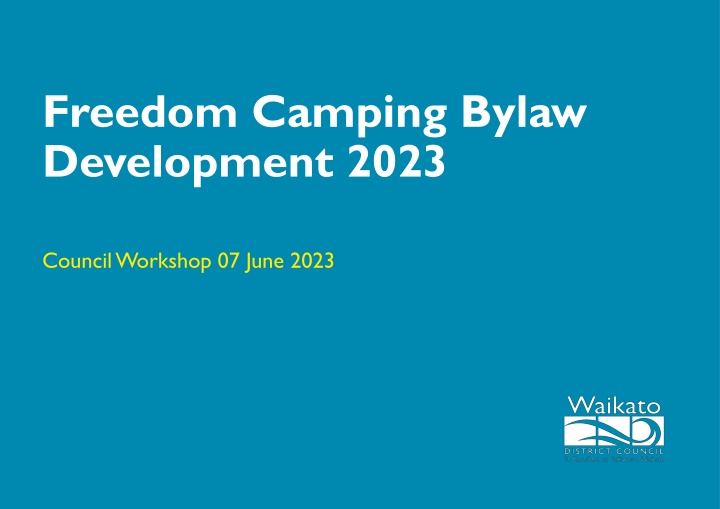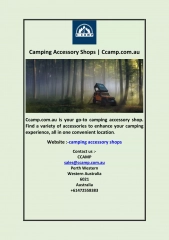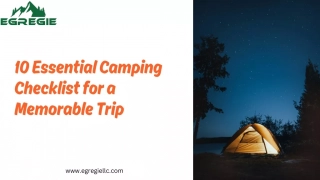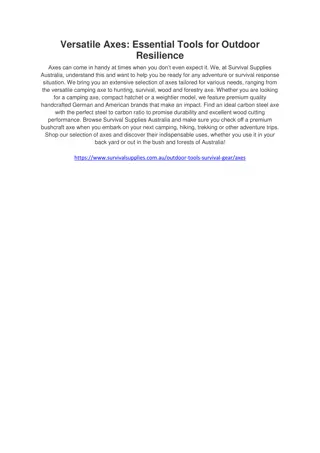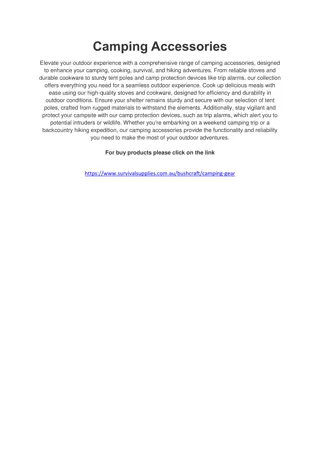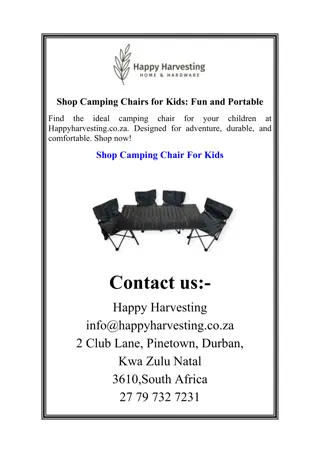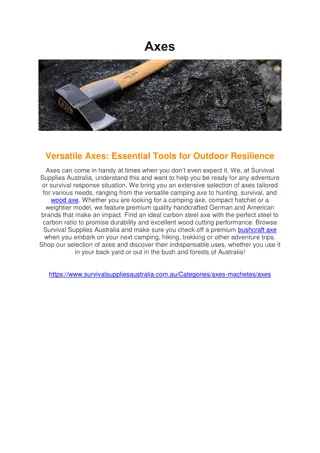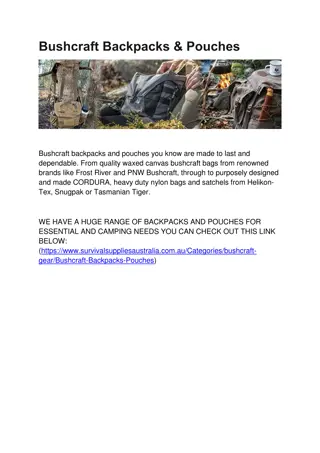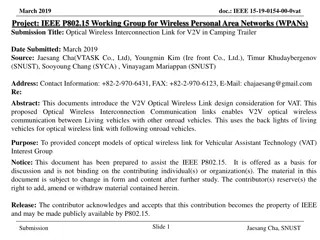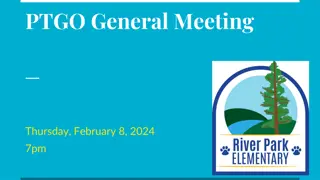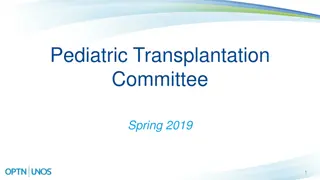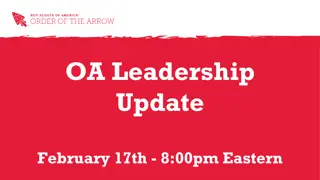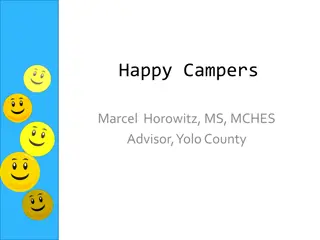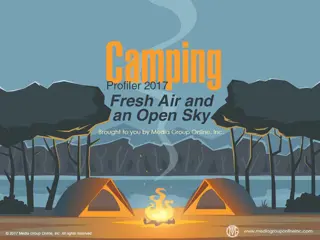Freedom Camping Bylaw Development 2023 Council Workshop
The workshop focuses on freedom camping bylaws, changes to legislation, current bylaw review process, assessment of existing areas, early engagement results, and next steps. It delves into the Freedom Camping Act 2011, identifying prohibited areas, and recent legislative amendments to require fixed toilets in certified self-contained vehicles for overnight stays. The workshop also highlights considerations for protecting sensitive areas, health and safety, and access to locations.
Download Presentation

Please find below an Image/Link to download the presentation.
The content on the website is provided AS IS for your information and personal use only. It may not be sold, licensed, or shared on other websites without obtaining consent from the author.If you encounter any issues during the download, it is possible that the publisher has removed the file from their server.
You are allowed to download the files provided on this website for personal or commercial use, subject to the condition that they are used lawfully. All files are the property of their respective owners.
The content on the website is provided AS IS for your information and personal use only. It may not be sold, licensed, or shared on other websites without obtaining consent from the author.
E N D
Presentation Transcript
Freedom Camping Bylaw Development 2023 Council Workshop 07 June 2023
What we will cover today 1. Freedom camping bylaws 2. Changes to legislation 3. The current bylaw review process 4. Assessment of our current Bylaw areas o Discussion 5. Early engagement results o Discussion 6. Next steps
Freedom camping bylaws The Freedom Camping Act 2011 (the Act) is key legislation for freedom camping bylaws The Act establishes that freedom camping is: o permitted by default on local authority land (land that councils control/manage) o cannot be blanket banned Freedom camping is camping within 200 metres of a motor vehicle accessible area or the mean low-water springs line of any sea or harbour, or on or within 200 metres of a formed road or a Great Walks Track, using one of more of the following: a tent or other temporary structure a caravan, or a car, campervan, house truck, or other motor vehicle. It does not include staying at a camping ground, temporary or short-term parking of a motor vehicle, day trips, or resting or sleeping at the roadside to avoid driver fatigue.
Freedom Camping Bylaws Freedom camping bylaws identify areas where freedom camping is prohibited and restricted The Act (section 11(2)) says councils can only prohibit or restrict freedom camping in an area if this is necessary to: a) Protect areas that are environmentally or culturally sensitive b) Protect health and safety to keep freedom campers and other visitors to an area safe c) Protect access to the area where the presence of freedom campers would block access or could damage infrastructure Freedom camping bylaws are limited to what they can consider under the Act other instruments address issues such as parking,antisocial behaviour, litter, fires, alcohol
Changes to legislation New Bill proposed in 2022 passed through Parliament on 31 May 2023 now awaiting royal assent Key changes include: Change to the certified self-contained standard to require a fixed toilet All vehicle-based freedom campers will need to be in a certified self-contained vehicle to stay overnight on land managed by local councils Updated infringement system allowing for different tiers of fines depending on the nature of the infringement Clearer direction that the definition of freedom camping does not capture homelessness MBIE is still working through releasing accompanying advice for councils, however, communications indicate there will a transition period of up to two years
Bylaw review process to date Our current 2016 Bylaw was due for review in 2021, and will automatically revoke by 17 October 2023 as per the LGA 2002 Current review initiated in 2022 so a new bylaw is required to be made Workshop held in September 2022 with Council to provide initial direction to the review Early engagement undertaken with community and key stakeholders from September 2022 Site assessments of each of the current prohibited and restricted areas undertaken against the criteria in the act (protect area, protect health and safety, protect access)
Our current Bylaw rules The 2016 Freedom Camping Bylaw has the following prohibited and restricted area rules: Prohibited areas No freedom camping is allowed in prohibited areas (for either certified self- contained and non-self-contained) unless by Council permission. Restricted areas Restricted areas allow for certified self-contained vehicles in specific areas. Point Ngaruawahia (limited to 3 nights in any one month period) and St Stephens car park in Tuakau (limited to 2 nights in any one month period). Non-self contained restricted areas ( permitted areas ) Two restricted areas where non-self-contained vehicles can freedom camp, limited to 2 nights in any one month period: Onewhero Domain Te Kauwhata Domain
Assessment matrix The matrix is a tool used by many councils, and considered best practice Assessment against the three protections outlined section 11(2) of the Act to determine whether prohibiting or restricting freedom camping is justified under the Act Provides a standardised way of applying the Act and demonstrates a clear line of sight between the criteria and the bylaw
Assessment of current sites Sites currently prohibited and restricted in the 2016 Bylaw have been assessed using the matrix Council staff largely recommend continuation of current prohibitions and restrictions, but are seeking guidance regarding potential changes on the following sites: Te Huinga o Ngaa Wai (The Point), Ngaaruawaahia o Consider extending the prohibited area to include the parking area at the squash club in Ngaaruawaahia to protect access for users of the club Waingaro Road section at end of the Hakarimata track, Ngaaruawaahia o Consider whether an area of the carpark, currently prohibited, could be re- classified as a restricted area for certified-self-contained freedom camping in a defined section of this carpark. Te Kauwhata domain, Amohia street, Te Kauwhata o Consider an amendment to further define the permitted area, reducing it to one end of the carpark (rather than the entire carpark and field as is currently indicated in the Bylaw) to leave some space for users of the sports clubs
Early engagement Online social mapping tool used to collect public feedback Allowed respondents to drop pins ; on a map to identify areas they thought should be prohibited, restricted or permitted for freedom camping From this feedback, staff have identified sites where further investigation could be undertaken. Guidance is sought from Council on the following sites, where respondents noted a prohibition or restriction could be required: o James Street, Raglan o Park Drive, Raglan (near tennis courts) o Wainui Road, Raglan (near the water treatment ponds) o Wainui Road, Raglan (near Wainui reserve bush park) o Te Kauwhata Domain, Amohia Road, Te Kauwhata
Targeted early engagement Community boards received a report at their May 2023 meeting requesting feedback on the current bylaw via an online survey. Five responses were received. Mana whenua were sent a similar online survey, and two responses were received. Guidance is sought on whether Council staff should investigate any sites raised through targeted early engagement
Proposed next steps 11 July: Approval to consult, Policy and Regulatory Committee 14 July: Consultation opens 13 August: Consultation closes 12 September: Hearings 13 September: Deliberations and recommendation to adopt 09 October: Adoption of new Bylaw
